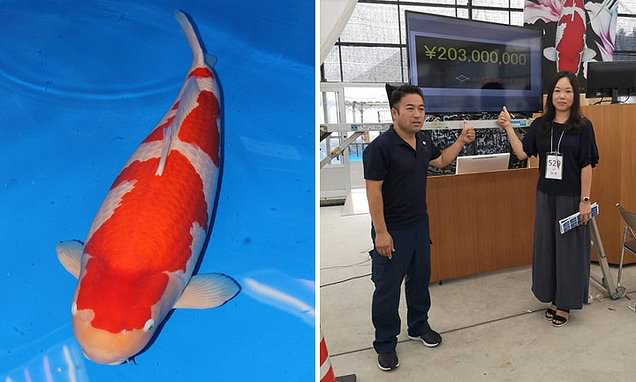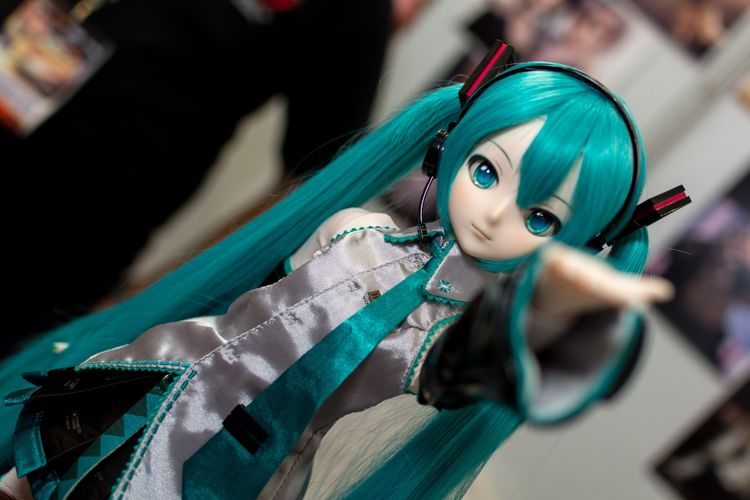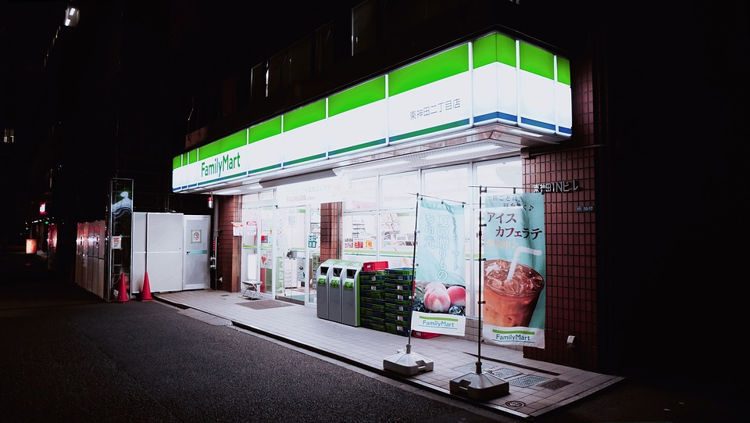Japanese Company Creates Oversized Backpacks So Large a Grown Person Can Fit Inside

Japanese design studio CWF has created the “Backpacker’s Closet”, a backpack so large it can literally be used a closet or even to carry a grown person around. Measuring 100 cm in length by 68 cm in width, the Backpacker’s Closet features a maximum holding capacity of 180 liters (48 gallons), making it ideal for carrying […]
World’s Most Expensive Live Fish Bought for a Whopping $1.8 Million

S Legend, a red and white Koi Carp bred in Japan became the most expensive live fish ever sold, after fetching a mind-blowing price of 203 million yen ($1.8 million), more than $1.3 million more than the previous record. The 101cm-long Koi Carp from the highly-regarded Kohaku variety was bought by a collector from Japan after […]
Get Ready for Realistic Snake Print Stockings

Japanese fashion design studio Mimi recently launched a collection of insanely realistic snake-print stockings that make your legs look like real snakes and, if social media feedback is any indication, they’ll soon be challenging animal print for supremacy in the fashion world. Mimi claims its new snake pattern designs put all previous models to shame […]
Japanese Boy Breaks Internet with His Incredibly Feminine Looks

A 15-year-old Japanese boy has been getting a lot of attention in his country and in neighboring South Korea for his unusually feminine looks and voice. Idegami Baku’s meteoric rise to fame occurred late last month, when he became a finalist in Japan’s popular talent contest JUNON Super Boy. Organized by famous entertainment magazine JUNON, the […]
Viral Video Shows Frozen Fish “Coming Back to Life” in Warm Water

A viral video that has been viewed over 50,000 times shows a fish being frozen in ice at a fish market in Japan and then seemingly brought back to life in a tub of warm water. The video starts with the fish being submerged in a vat full of crushed ice and then cuts to […]
Cruel Boss Dunks Employee’s Face in Boiling Hotpot as a Joke

A 23-year-old man has filed a criminal complaint against his ex-boss for dunking his face into a scalding hotpot at an office party, as a joke, causing severe burns to his face that required over a month to heal. The shocking event reportedly took place at a company party on December 20, 2015, but was […]
Single Mother Has Been Paying an Actor to Pose as Her Daughter’s Father for the Last 10 Years

In an effort to spare her young daughter from being ostracized by other children for not having a father, a Japanese single mother made the controversial decision to hire an actor who has been posing as the girl’s father for the last 10 years. Megumi was only a baby when her parents separated and he […]
Japanese Cybersecurity Minister Admits He Has Never Used a Computer

Yoshitaka Sakurada, Japan’s new cybersecurity minister, recently left the whole world dumbfounded after admitting that he has never used a computer. Sakurada made the stunning admission during a question and answer session with Japan’s Lower House cabinet committee. When asked about things like the power grid and malware, the newly appointed cybersecurity minister seemed overwhelmed, and […]
Cats Try and Fail to Enter Japanese Museum for Two Years, Become Internet Stars Instead

Two cute felines who have been trying to enter an art museum in Hiroshima, Japan, a few times a week for the past two years recently went viral online. The cats have yet to get past the guards at the museum’s front door, but their persistence has earned them the adoration of millions of people. […]
Japanese Man Marries Virtual Pop-Star Because He Distrusts Real Women

A 35-year-old Japanese man who shunned romantic relationships with real women after being humiliated and bullied by them recently married a popular virtual pop-star named Hatsune Miku. Akihiko Kondo had been planning his dream wedding to the love of his life since March, and on November 4 the two finally tied the knot during a […]
Japanese Labor Day Event Lets People Experience What It’s Like to Work for Horrible Bosses

Japan has a culture of long working hours, but even in this generally tough and stressful working environment some companies stand out because of the complete disregard for their employees’ well-being. They are known as “black companies” and anyone who has ever wanted to experience what working for such organizations is like, without actually getting […]
Japanese Pop-Up Restaurant Served the Last Meals of Infamous Death Row Inmates

Ningen, a pop-up restaurant in Tokyo’s Shinjuku district, attracted a lot of media attention over the last two weeks for giving patrons the chance to order the last meals requested by infamous death row inmates before their execution. The controversial eatery was opened by a Japanese art collective called Chim↑Pom and for two weeks served the last […]
Guy Mesmerizes Japanese Social Media with His Ability to Create Giant Clumps of Foam Out of Tiny Drops of Lather

A Japanese Twitter user has been getting a lot of attention online for his ability to create large, dense clumps of foam out of tiny drops of lather or soap, using only his hands. Ever wish you could produce the same kind of frothy, dense foam as an expensive foam dispenser using only your hands? […]
Japanese Company Introduces “Sleep Remuneration System” to Increase Employee Productivity

Japan has some of the world’s longest working hours, but some companies are starting to realize that their workers also need to sleep in order to be productive. One such company is actually encouraging employees to sleep more by rewarding them with points that can be spent at cafes and cafeterias. CRAZY, a Tokyo-based wedding […]
Japanese Man Politely Asks to Rob Convenience Store, Turns Himself In Shortly After

Japanese people are renowned for their manners and politeness, but this incident shows just how far that politeness can go. A man recently went into a convenience store, asked the manager if he could rob the place and upon being refused, he left and later turned himself in to police. The bizarre robbery attempt took […]
